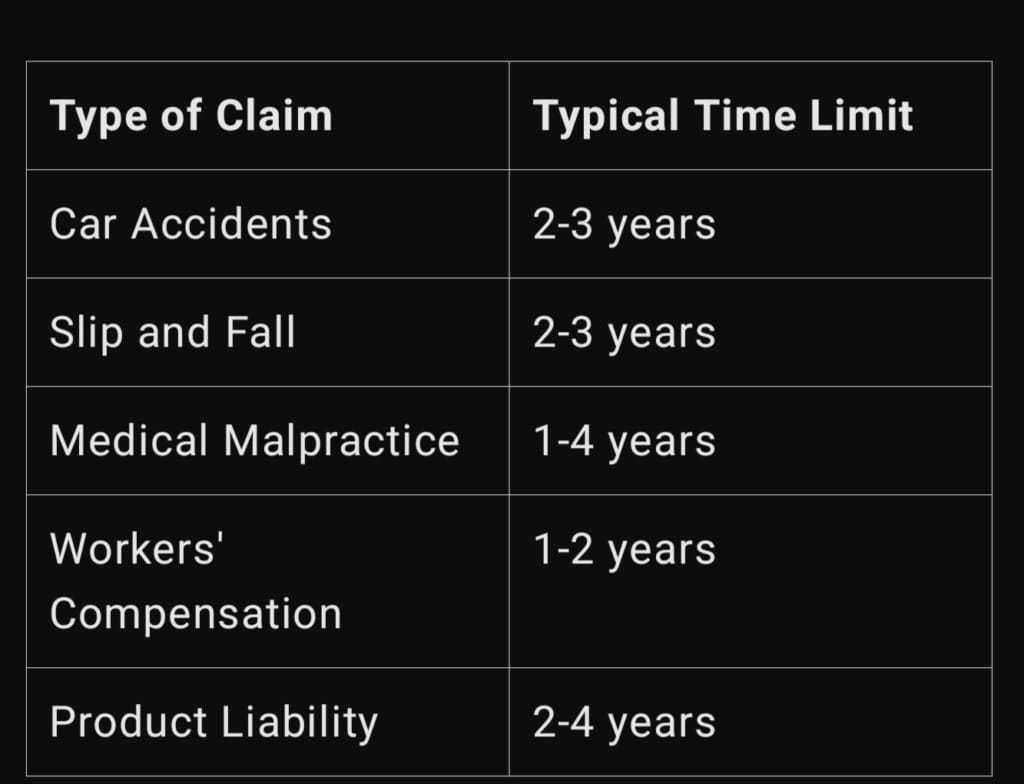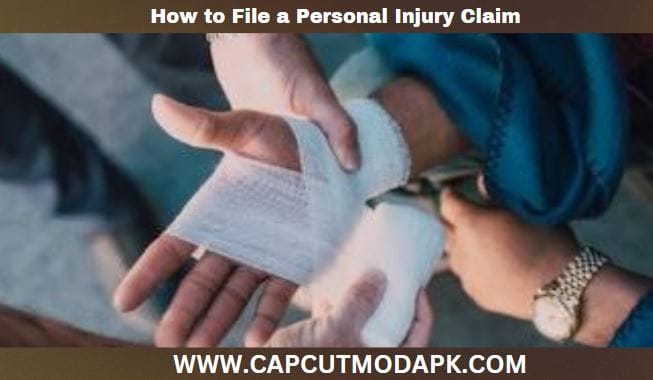If you’ve been injured in an accident that wasn’t your fault, you may be entitled to financial compensation.
A personal injury claim allows you to recover damages for medical expenses, lost wages, pain and suffering, and other losses.
However, the claims process can be confusing, especially if you’re unfamiliar with legal procedures.
This guide will walk you through how to file a personal injury claim, explain the best way to approach your case, and answer common questions like how much settlements are worth, who pays the claims, and how long you have to file.
Also, Read
How To Sue For Personal Injury
How To Get Compensation For An Injury
How To Find The Best Personal Injury Lawyer
What Is the Best Way to Make a Personal Injury Claim?
Filing a personal injury claim involves multiple steps, from gathering evidence to negotiating a settlement. Here’s the best way to go about it:
- Seek Medical Attention Immediately
Your health should be your top priority. Even if your injuries seem minor, you should visit a doctor as soon as possible. Medical records serve as crucial evidence in your claim. Insurance companies often argue that a delayed medical visit means your injury wasn’t serious.
- Gather Evidence at the Scene
The more evidence you collect, the stronger your case. Immediately after the accident, try to:
Take photos and videos of the accident scene, injuries, and property damage.
Collect witness statements and contact details.
Obtain a police report if applicable (e.g., in car accidents).
Keep track of all medical bills and receipts.
- Notify the At-Fault Party and Their Insurance Company
In cases involving car accidents, slip and falls, or workplace injuries, you need to inform the responsible party (or their insurance company) about your intent to file a claim. Some companies require official notice within a certain period.
- Hire a Personal Injury Lawyer (Optional but Recommended)
While you can file a claim on your own, hiring an experienced personal injury attorney increases your chances of getting a fair settlement. Lawyers:
Handle negotiations with insurance adjusters.
Gather additional evidence and expert testimonies.
Help you avoid common mistakes that could weaken your case.
- File an Insurance Claim or Lawsuit
Depending on the situation, you may:
File a claim with the at-fault party’s insurance company.
File a lawsuit if negotiations fail.
Most personal injury cases settle outside of court, but if the insurance company refuses a fair offer, a lawsuit may be necessary.
How Much Do Most Personal Injury Cases Settle For?
Settlement amounts vary depending on:
Severity of injuries – Minor injuries (like sprains) result in lower settlements, while severe injuries (like spinal damage) lead to higher payouts.
Medical expenses – The more you’ve spent on treatment, the higher your compensation.
Lost wages – If your injury prevents you from working, you can claim lost earnings.
Pain and suffering – This is subjective and calculated based on how the injury affects your daily life.
Average Settlement Amounts
Car accidents – $20,000 – $50,000 (minor injuries), $100,000+ (severe injuries).
Slip and fall injuries – $10,000 – $50,000 (mild to moderate injuries), $100,000+ (for life-changing conditions).
Medical malpractice – Can exceed $250,000, depending on negligence.
If a case goes to court and wins, jury awards can be much higher than settlements. However, trials take longer and have no guaranteed outcome.
How Long After an Accident Can You Make a Claim?

The timeframe for filing a claim depends on the statute of limitations in your state.
In most U.S. states, the deadline is 2 to 3 years from the date of injury.
Some states have shorter deadlines (1 year), while others extend it to 5+ years for certain cases.
If a minor is injured, they often have longer to file (until they turn 18 in some states).
Why Do Deadlines Matter?
If you miss the deadline, your case will likely be dismissed, and you won’t be able to recover compensation.
Exceptions to the Rule
Some cases qualify for deadline extensions, such as:
If the victim was mentally incapacitated after the accident.
If the injury was discovered later (e.g., internal injuries).
If the at-fault party left the state, pausing the time limit.
Always check your state’s specific statute of limitations to avoid missing your window to file.
Who Pays Personal Injury Claims?
- Insurance Companies
In most cases, insurance companies pay the settlement on behalf of the at-fault party. Examples include:
Car accidents – The at-fault driver’s auto insurance covers medical bills and damages.
Workplace injuries – Employers’ workers’ compensation insurance covers medical expenses.
Slip and fall cases – Property owners’ liability insurance pays for injuries on their premises.
- The At-Fault Party (If Uninsured)
If the responsible party doesn’t have insurance, they may be personally liable. This means they might:
Pay the settlement from their personal assets.
Have wages garnished to cover the compensation.
- Your Own Insurance (If No Other Option)
If the at-fault party can’t pay, you may need to use:
Uninsured motorist coverage (for car accidents).
Health insurance (for medical costs).
A lawyer can help determine who is responsible and explore all possible compensation sources.
What Is the Time Limit for Accident Claims?
The time limit for accident claims varies depending on the type of accident and the state’s laws.

How to Avoid Missing Deadlines
File your claim as soon as possible after the accident.
Consult a lawyer to confirm your state’s filing deadlines.
Keep detailed records of all accident-related expenses and medical treatments.
Final Thoughts
Filing a personal injury claim can feel overwhelming, but by taking the right steps early, you improve your chances of success.
Key Takeaways:
✔ Seek medical attention and document everything.
✔ Gather evidence and notify the at-fault party’s insurance.
✔ Understand settlement values and how compensation is calculated.
✔ Act within legal deadlines to avoid missing out on compensation.
✔ Consider hiring a lawyer to strengthen your case and negotiate effectively.
If you’ve been injured due to someone else’s negligence, don’t wait too long to take action.
Contact a personal injury attorney today to explore your options and maximize your claim’s value.


